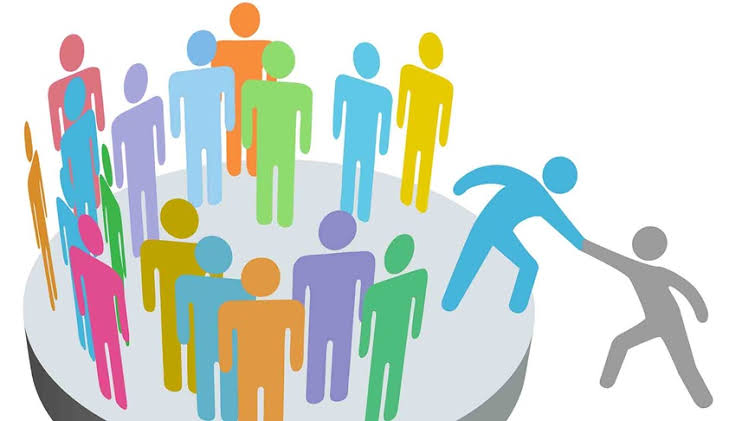Law is a crucial aspect of our society. It gives civilians a direction towards the way of life and how our ideal demeanor in society should be. Because if there’s no law in place, how do we control crimes? In order to keep all this in check, there are different types of punishment depending on the severity of the crime. Small or petty crimes won’t attract serious punishments and might be forgiven with just some fine.
But things turn serious when someone gets convicted of a felony and the court issues charges on them. Felony conviction is a result of any sort of violent crime that’s much beyond the realms of misbehaviors or misdemeanors. This can lead to strict punishments like long-term imprisonment.
Felony isn’t small-time crimes like pickpocketing or jaywalking, etc. It’s a class of crime that involves violence – this can be in the form of murder, sexual assault, armed robbery, and so on. And one cannot get away with felony by just paying a fine. However, the repercussions of being convicted of a felony do not end at just the punishment. It lingers for life. Hence, it’s important to keep your acts in check.
Felony can scar anybody’s position in the society for life. We live in a world where there’s immense discrimination based on caste, creed, race, gender, sexual orientation, our looks, etc. Now imagine when the society discriminates based on things that are beyond our control, things can get really worse when someone has a criminal history attached to their name. Because crime is something that one does out of choice. And that poses a serious question on a person’s credibility and character. Nothing can undo its impact.
Let’s look at how felony can leave an irreversible mark on someone’s societal status.
Top of the list
While it’s good to be at the top of the list in life, however, that’s not something that anybody should aim for in this case. This is an offenders’ record and a felony will always be a part of that list for life. Nothing – not even the grandest gestures of kindness can undo this. This will serve as a person’s character record and at every step of life – from education to employment to voting to traveling – this list will be referred to.
Education
Most felons are left behind in life because for them getting proper education can become extremely difficult. Many surveys have showed that more than 30% of felons do not have a high school diploma. Most employers these days seek candidates with solid educational background and lack of this clearly puts felons at a very weak spot. Additionally, the serious dearth of prison education programs further restricts felons from having a decent life after they finish serving their punishment. Even though a few states are working on providing funding on education for felons, the future of this is still bleak. Lack of education diminishes the chances of felons having a decent life thereby starting another vicious circle of them getting into other acts of crimes to earn money for their livelihood.
Employment
Finding employment once being convicted of a felony is another roadblock to a felon’s future. Any employer in the United States has the right to ask an applicant about their criminal history. Employers cannot discriminate an applicant based on their religion, sex, race, or other factors that are beyond their control. Along with this the Equal Employee Opportunity Commission’s federal laws also do not allow employers to discriminate applicants based on their criminal history. However, having said that, this is still a murky area as a lot of employers try to avoid employing those with criminal history as it can jeopardize an employer’s position by putting a finger on their hiring practices. So, if an employer has to choose between two candidates out of which one was a felon, they will clearly try to choose the non-felon candidate in order to be on the safer side.
Right to vote
Once convicted of felony, an individual loses their right to vote in as many as 35 states. Let’s consider the example of the State of Florida, Iowa, Virginia, and Kentucky. In these states, one cannot vote for life unless the governor restores this right to the felon. In several other states, one has to go through extended waiting period to get back their right to vote. This means that one cannot be of significant decision-making when it comes to choosing their government. Needless to say, this means a felon can never partake in jury, or be a candidate for the office.
Loans
Acquiring loans or any kind of financial aid also is fraught with difficulty with felony conviction. Additionally, any possession of controlled substance further makes it difficult for an individual to get education loans or grants.
Finding a house on rent
This is another repercussion of felony conviction that can come in the way of leading a normal life for any individual. Not having a place to say is extremely frustrating as landlords often refuse to rent out spaces to someone with criminal history as they recognize them as a class of citizens who are not protected. This means felons have to find alternate ways of having a space – which can be staying with family or friends. This coupled with other issues like not having a job or inability to acquire a loan for education makes life for felons more difficult.
What can society do to make lives of felons easier?
Felony shouldn’t be ignored and taken lightly. However, if an individual wants to come out of it and pave a path towards leading a better life, the society needs to be a lot more accepting and do everything to help them bring their lives back on track. Often, it’s the societal discrimination towards felons that make them resort to crimes again due to the sheer lack of opportunities to restart their lives on a clean slate.
